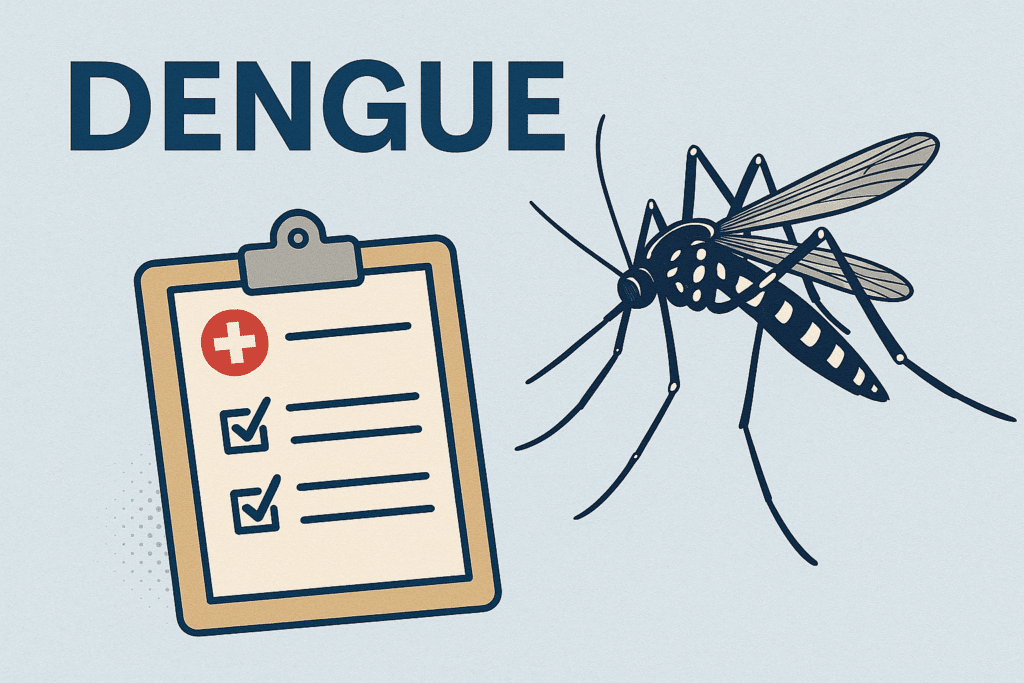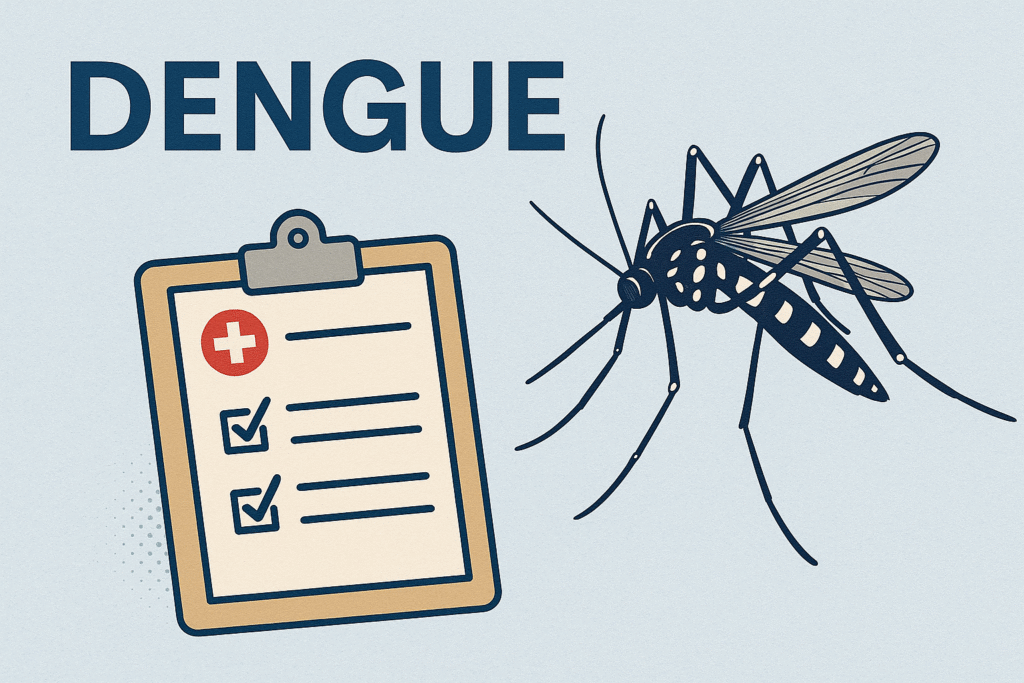

Dengue fever is a viral disease transmitted by the Aedes aegypti mosquito, which thrives in warm, humid, and urban environments. In Mexico, dengue fever is especially common during the rainy season and can affect both adults and children. Recognizing the symptoms early and seeking medical attention is key to preventing complications.
What Causes Dengue Fever and How It Spreads
Dengue fever is caused by a Flavivirus with four distinct serotypes (DEN-1, DEN-2, DEN-3, and DEN-4). The virus is transmitted through the bite of an infected Aedes aegypti mosquito.
It’s important to note that dengue fever is not spread from person to person, but rather through mosquito bites.
Updated Classification of Dengue Fever
According to the World Health Organization (WHO), dengue is now classified into three main categories:
- Dengue without warning signs: high fever, headache, muscle and joint pain, and pain behind the eyes.
- Dengue with warning signs: abdominal pain, persistent vomiting, mild bleeding (nose or gums), and low platelet count.
- Severe dengue: previously known as dengue hemorrhagic fever or dengue shock syndrome, it may cause severe bleeding, organ failure, or respiratory distress.
Common Symptoms of Dengue Fever
Symptoms usually appear between 4 and 10 days after the mosquito bite. Typical signs include:
- High fever (above 39°C / 102°F)
- Severe muscle and joint pain
- Headache and fatigue
- Nausea or vomiting
- Pain behind the eyes
- Skin rash or red spots
If you experience bleeding, confusion, or difficulty breathing, seek emergency medical care immediately.
Diagnostic Tests for Dengue Fever
When dengue fever is suspected, your doctor may order several lab tests to confirm the diagnosis and monitor your condition:
- NS1 antigen test: detects viral proteins during the first days of fever.
- Complete blood count (CBC): evaluates platelets, white blood cells, and hematocrit levels.
- Serological tests (IgM and IgG): help determine whether the infection is recent or past.
- Liver function tests: may be recommended in moderate or severe cases.
These tests are essential to detect complications and guide appropriate treatment.
Dengue Vaccine in Mexico
A dengue vaccine is now available in Mexico, primarily recommended for individuals living in endemic areas who have had a confirmed previous dengue infection.
To learn more about the vaccination schedule, eligibility, and availability, visit our full article about the Dengue Vaccine in Mexico.
Where Dengue Fever Is Most Common in Mexico
At Doctor At Home México, we provide medical home visits across the country — especially in tropical and coastal cities with higher dengue incidence, including:
Puerto Vallarta, Mérida, Cancún, Playa del Carmen, Cozumel, Mazatlán, Culiacán, San José del Cabo, and Acapulco.
We also serve Guadalajara, Chapala, Morelia, San Luis Potosí, Cuernavaca, Puebla, Mexico City, the State of Mexico, and Monterrey.
These areas are more prone to dengue transmission due to warm climates and mosquito breeding conditions, so preventive measures and early diagnosis are crucial.
Conclusion
Dengue fever is a preventable yet potentially serious disease. Keeping your surroundings clean, eliminating standing water, and using mosquito repellent are effective ways to protect yourself and your family.
If you develop fever, body pain, or any warning signs, schedule a home medical consultation with Doctor At Home México for timely care and testing.
